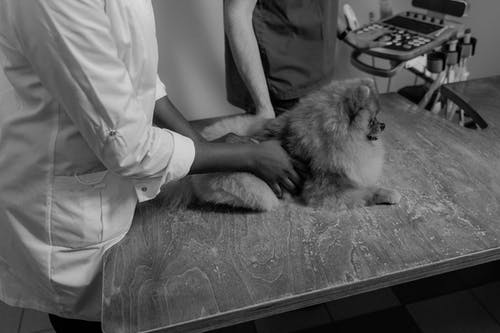Veterinary Assistant Myths You Shouldn’t Believe
Veterinarians aren’t the only workers who run veterinary clinics. Most veterinary clinics have other types of workers on their payroll, including veterinary assistants. Veterinary assistants are paraveterinary workers who, as the name suggests, assist veterinarians with their daily duties. When researching the veterinary assistant profession, though, you may encounter some bad information. There are several veterinary assistant myths that you shouldn’t believe.
Same as Veterinary Technicians
Veterinary assistants aren’t the same as veterinary technicians. Veterinary technicians are paraveterinary workers as well, but they have different responsibilities and duties than veterinary assistants. Veterinary technicians may prepare animals for surgery, take X-rays of injured animals, collect blood or tissue samples, monitor the health vitals of animals and perform other related tasks. In comparison, veterinary assistants only assist licensed veterinarians. They may handle animals, administer medication, bathe animals, etc.
Require a License
You typically don’t need a license to work as a veterinary assistant. Licensing for all veterinary professions is governed at a state level in the United States. While different states have different requirements, most of them don’t require veterinary assistants to obtain a license. You can start a job as a veterinary assistant without jumping through the hoops of licensure. Working as a veterinarian or a veterinary technician, on the other hand, will typically require a license. Requirements vary from state to state, but all states require veterinarians to obtain a license, and most states require veterinary technicians to obtain a license.
Perform Receptionist Work
While some veterinary assistants may perform reception work, it’s not their sole duty. Most veterinary clinics have receptionists who are responsible for managing the front desk. Receptionists greet clients, answer the phone, book appointments and more. As a veterinary assistant, you may be required to perform some of the tasks. If the clinic’s receptionist is away, for instance, you may have to fill in for him or her. Veterinary assistants, though, spend most of their day working alongside veterinarians.
Doesn’t Require Training
Another common veterinary assistant myth is that the profession doesn’t require any training. You don’t have to obtain a license to work as a veterinary assistant, nor do you need to earn a college degree. With that said, most jobs require some form of training — and veterinary assistants are no exception. The veterinary clinic at which you work should provide you with the necessary training. Training programs for veterinary assistants may last for one to two weeks. During this time, you’ll usually shadow either another veterinary assistant or a veterinarian while learning the ropes of this profession.

No Formal Certification Program Available
Contrary to popular belief, there are formal certification programs available for veterinary assistants. The Certified Veterinary Assistant (CVA) and Approved Veterinary Assistant (AVA) are two of the most well-known. While their curriculum varies, they both cover topics that are exclusive to the veterinary assistant profession. You don’t have to complete any of these programs to work as a veterinary assistant. By completing a certification program, however, you’ll have an easier time securing a job as a veterinary assistant. Certification will show prospective employers that you’ve gone the extra mile with your education and, as a result, have the knowledge to succeed.
Only Work With Pets
You can expect to work with plenty of pets as a veterinary assistant. After all, veterinary clinics typically see pets like dogs and cats on a daily basis. When an owner’s pet is sick or injured, he or she may visit a veterinary clinic for treatment. Veterinary clinics, as well as their respective staff, see other types of animals, though. Farmers, for example, may contact a veterinary clinic if their cows or sheep need medical treatment. When a veterinarian visits a farm to provide medical treatment, he or she may require a veterinary assistant to help with the treatment. The bottom line is that you may work with other types of animals as a veterinary assistant.
Long Work Schedules
Veterinary assistants don’t always have long work schedules. Work schedules can vary from clinic to clinic. Some veterinary clinics will require their veterinary assistants to work longer than others. Most of them, though, don’t require veterinary assistants to work on the weekends. Veterinary clinics are typically closed on the weekends — or they are only open for a few hours. Therefore, veterinary assistants usually only work on weekdays.
Little or No Room for Professional Advancement
This myth couldn’t be further from the truth. Veterinary assistants can absolutely advance their careers. After working as a veterinary assistant for an extended period, you can enroll in a veterinary technology program. After completing this program, you can seek a job as a veterinary technician or a veterinary technologist. Even then, you may want to pursue a career as a licensed veterinary, which will require additional education and training.

